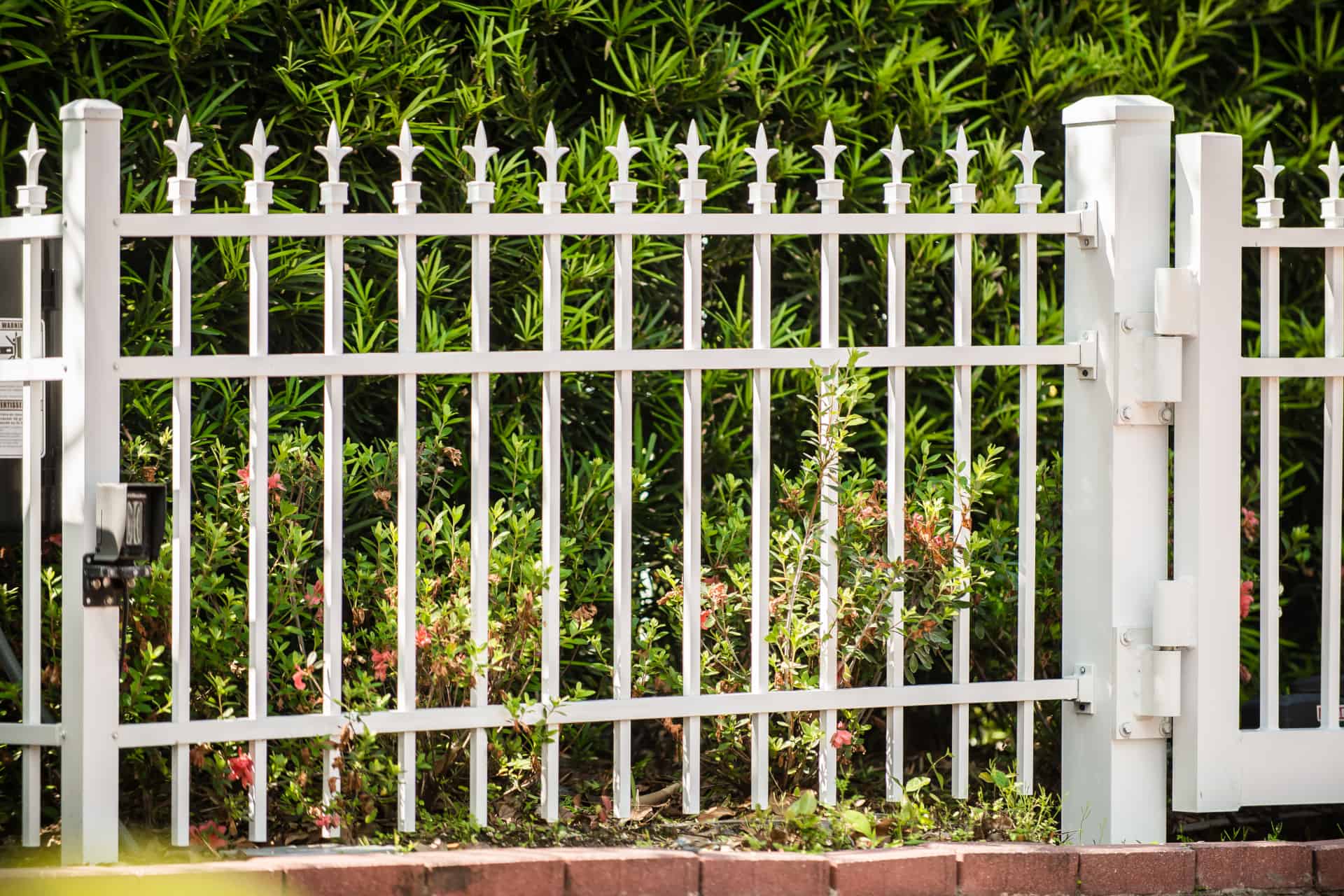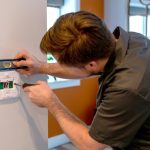In today’s world, the need for enhanced security and control over our living spaces has become increasingly paramount. One of the cornerstones of this pursuit is the implementation of residential gate access control systems, which serve as the first line of defense in protecting our homes and families from unauthorized entry.
In this comprehensive guide, we will delve into the world of residential gate access control systems, exploring the various technologies, features, and benefits that these advanced systems offer. Whether you’re a homeowner seeking to upgrade your home’s security or a real estate professional looking to enhance the appeal and safety of a property, this article will equip you with the knowledge and insights to make informed decisions when it comes to safeguarding your residential space.
Prepare to unlock the secrets of residential gate access control systems and take control of your home’s security.
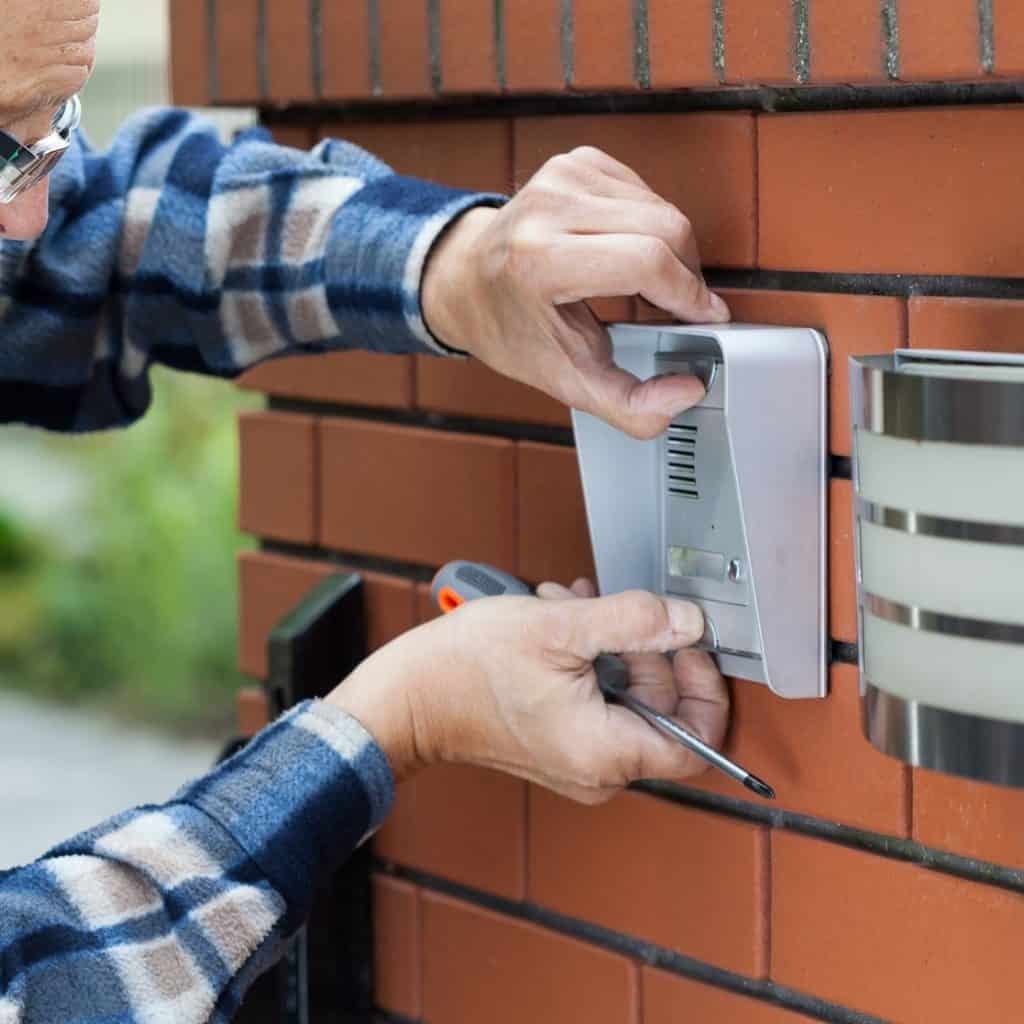
Understanding Residential Gate Access Control Systems
Before we dive into the specifics of residential gate access control systems, it’s essential to have a firm grasp of their purpose, functionality, and the different technologies that power these innovative security solutions.
The Purpose of Residential Gate Access Control
Residential gate access control systems are designed to provide a secure and controlled entry point to a private property, allowing authorized individuals to access the premises while deterring and restricting unauthorized entry.
Enhancing Home Security
These systems play a crucial role in enhancing the overall security of a residential property, reducing the risk of burglaries, trespassing, and other potential threats.
Providing Convenience and Control
Residential gate access control systems offer homeowners the convenience of managing and controlling who enters their property, even remotely.
Key Components of Residential Gate Access Control Systems
Residential gate access control systems typically consist of several key components that work together to maintain the security and functionality of the entry point.
Gate Operator or Actuator
The gate operator or actuator is the mechanical component responsible for opening and closing the gate, either automatically or upon receiving a command.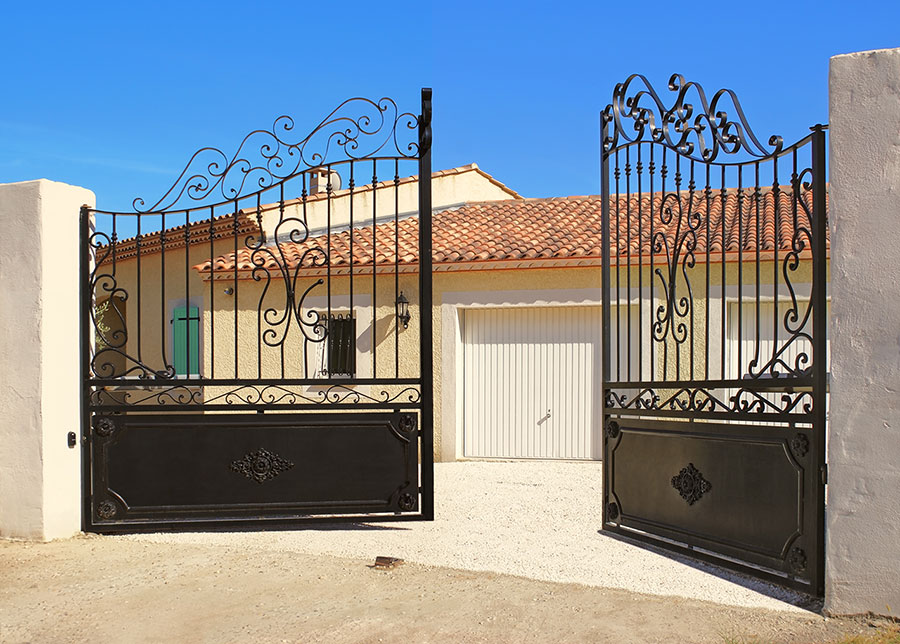
Access Control Devices
Access control devices, such as keypads, card readers, or biometric scanners, allow authorized individuals to gain entry by verifying their identity.
Communication and Control Systems
The communication and control systems, often comprising control panels, wiring, and software, facilitate the integration and management of the various access control components.
Prevalent Technologies in Residential Gate Access Control
Residential gate access control systems leverage a range of technologies to provide secure, reliable, and user-friendly access management solutions.
Keypad or Keycode Entry
Keypads or keycode entry systems require users to enter a unique code to gain access, providing a simple and convenient access control method.
Card or Fob-based Access
Card or fob-based access control systems utilize RFID (Radio Frequency Identification) technology to authenticate and authorize entry.
Biometric Authentication
Biometric access control, such as fingerprint or facial recognition, offers a more secure and personalized method of verifying user identity.
Benefits of Residential Gate Access Control Systems
Investing in a residential gate access control system can provide a multitude of benefits that enhance the safety, convenience, and overall appeal of a residential property.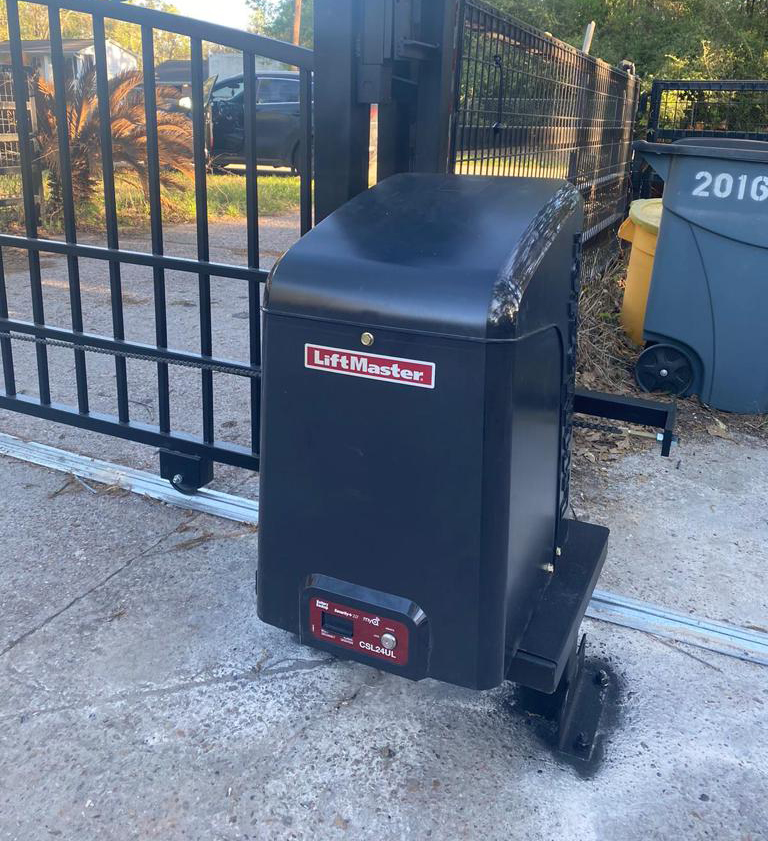
Enhanced Security and Deterrence
One of the primary benefits of residential gate access control systems is their ability to significantly enhance the security of a property.
Restricted and Controlled Access
These systems ensure that only authorized individuals can enter the property, reducing the risk of unauthorized entry and intrusion.
Deterring Potential Threats
The presence of a secure gate access control system can serve as a strong deterrent, discouraging potential intruders from attempting to gain access.
Improved Convenience and User Experience
Residential gate access control systems offer homeowners and their guests a more convenient and user-friendly entry experience.
Remote Access and Management
Many systems allow homeowners to remotely monitor, control, and grant access to the property, even when away from home.
Streamlined Entry Process
The seamless integration of access control devices, such as keypads or card readers, provides a hassle-free entry experience for authorized individuals.
Enhanced Property Value and Curb Appeal
Incorporating a residential gate access control system can also contribute to the overall value and aesthetic appeal of a property.
Increased Marketability
The presence of a modern, well-integrated gate access control system can be a significant selling point for potential buyers.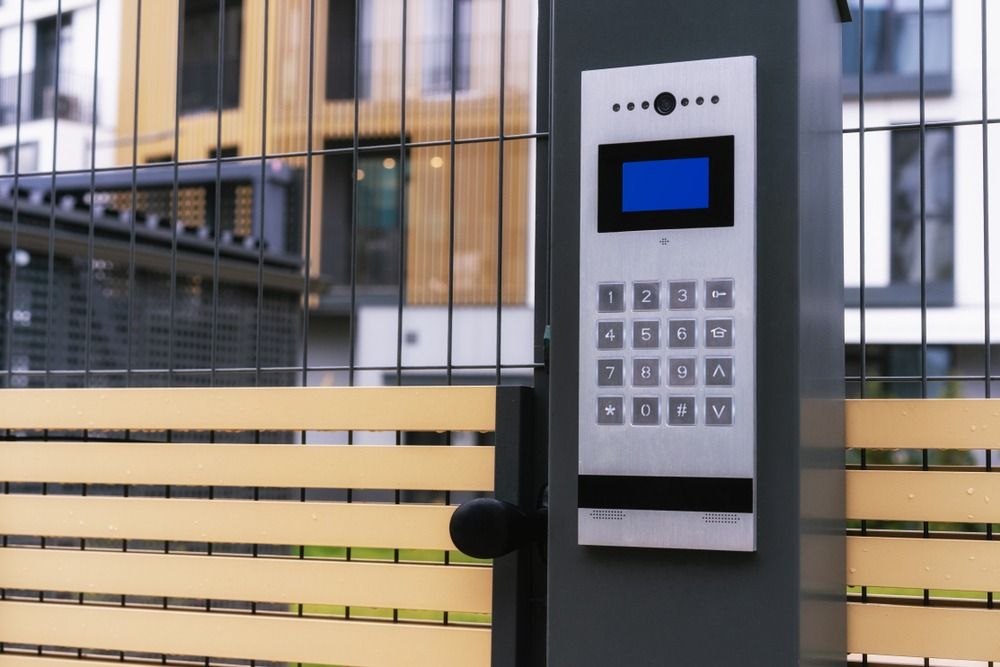
Improved Aesthetic Integration
Residential gate access control systems can be designed and installed to seamlessly blend with the architectural style and landscaping of the property.
Choosing the Right Residential Gate Access Control System
When it comes to selecting the appropriate residential gate access control system, there are several key factors to consider to ensure you make an informed and tailored decision.
Assessing Your Security Needs
The first step in choosing the right residential gate access control system is to carefully assess your specific security requirements and preferences.
Evaluating the Property Layout
Carefully consider the physical layout of your property, including the gate size, entry points, and any unique features that may impact the system design.
Determining the Level of Security Required
Assess the level of security your property requires based on factors such as the neighborhood, potential threats, and your personal preferences.
Selecting the Appropriate Technologies
Once you’ve identified your security needs, you can begin to explore the various technologies and features offered by residential gate access control systems.
Evaluating Access Control Methods
Decide which access control method, such as keypads, cards, or biometrics, aligns best with your preferences and the needs of your household.
Integrating with Smart Home Automation
Consider the potential to integrate your gate access control system with other smart home technologies for enhanced convenience and oversight.
Considering Installation and Maintenance
The installation and ongoing maintenance of your residential gate access control system are also crucial factors to take into account.
Evaluating Professional Installation
Determine whether you will require professional installation or if you have the expertise to handle the setup yourself.
Ensuring Proper Maintenance and Support
Inquire about the availability of maintenance services, warranty coverage, and technical support from the system provider.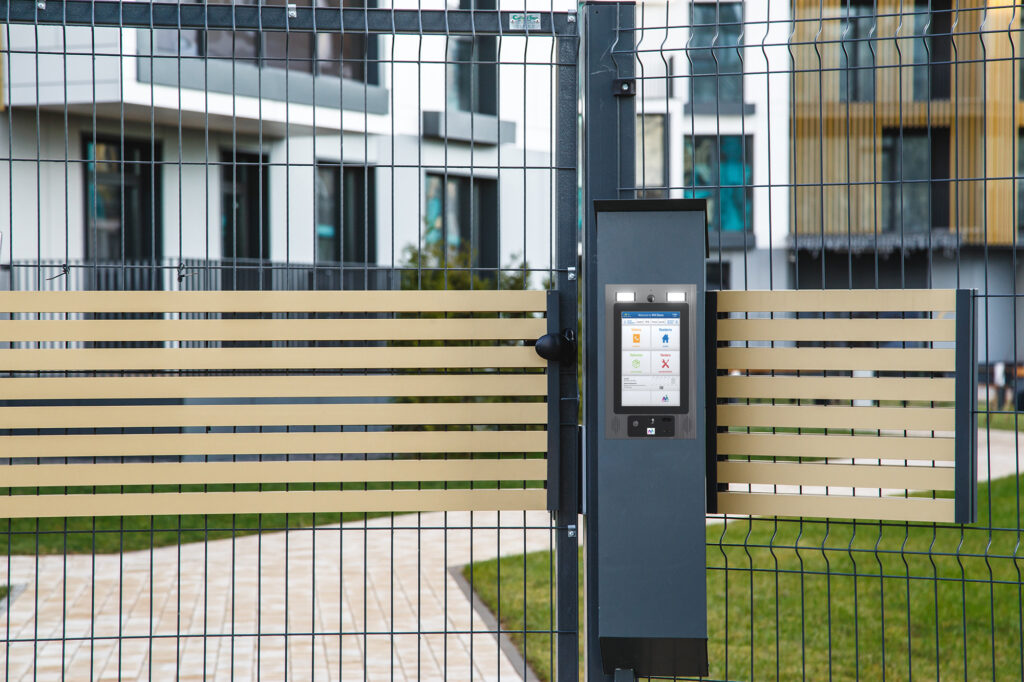
Implementing and Maintaining Your Residential Gate Access Control System
Once you’ve selected the appropriate residential gate access control system, the next step is to ensure a seamless implementation and ongoing maintenance to keep your home’s security constantly optimized.
Preparing for Installation
Before the installation process begins, take the necessary steps to prepare your property and ensure a smooth system integration.
Clearing the Installation Area
Ensure the gate, entry points, and any other relevant areas are clear and accessible for the installation team.
Communicating with Homeowners and Residents
Inform all household members about the upcoming installation and any temporary access restrictions that may be in place.
Integrating the System and Configuring Access
During the installation process, the system integrator will ensure the proper integration and configuration of the access control components.
Establishing Access Privileges
Work with the installer to set up user accounts, access codes, and privileges for authorized individuals.
Testing the System’s Functionality
Thoroughly test the system’s operation, including the gate’s movement, access control devices, and remote management capabilities.
Ongoing Maintenance and Updates
Maintaining the optimal performance and security of your residential gate access control system requires a proactive and consistent approach.
Scheduling Routine Inspections
Establish a schedule for regular inspections and maintenance checks to identify and address any issues.
Implementing Firmware and Software Updates
Stay vigilant about applying any necessary firmware or software updates to keep your system current and secure.
Conclusion: Elevating Your Home’s Security with Residential Gate Access Control
Residential gate access control systems play a crucial role in enhancing the security, convenience, and overall value of your home. By understanding the purpose, components, and technologies that power these innovative security solutions, you can make informed decisions to safeguard your property and provide a secure, controlled entry point for your household and visitors.
Through this comprehensive guide, you have gained the knowledge and insights necessary to navigate the world of residential gate access control systems. Whether you’re a homeowner seeking to upgrade your home’s security or a real estate professional looking to enhance the appeal and safety of a property, the strategies and best practices outlined in this article will empower you to make the right choices and implement a tailored solution that meets your specific needs.
As you embark on the journey of securing your home with a residential gate access control system, remember that the safety and well-being of your family and property are of the utmost importance. By investing in a reliable, feature-rich system and maintaining it diligently, you can enjoy the peace of mind that comes with knowing your home is protected from unauthorized access and potential threats.
Elevate the security and convenience of your home by embracing the power of residential gate access control systems.
